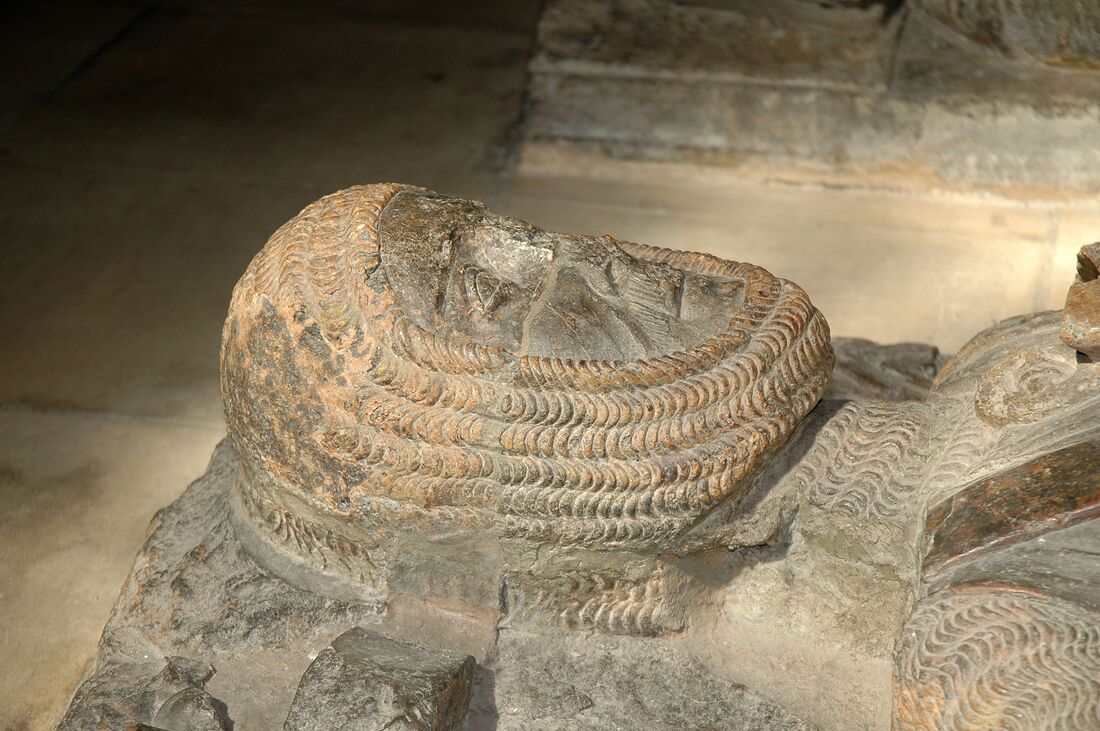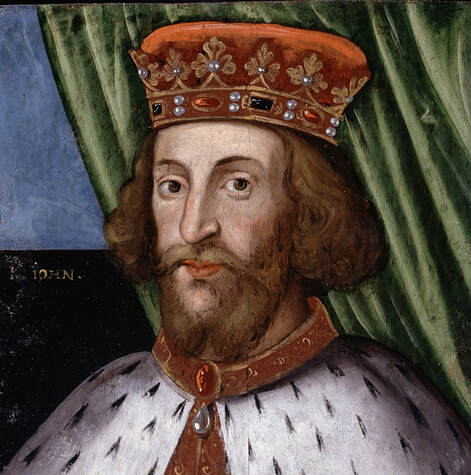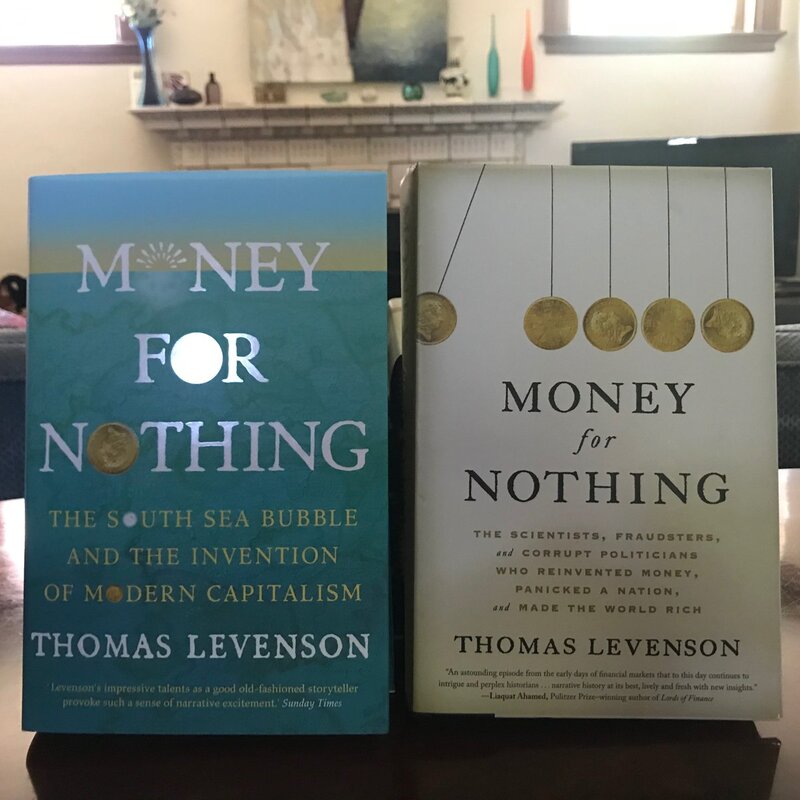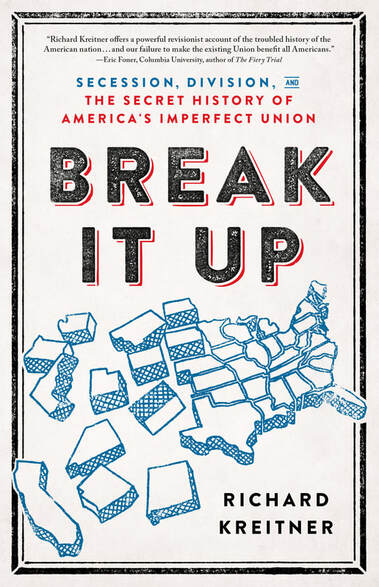|
'Legion: Thirteen Ways Of Looking At Lawrence Of Arabia' by Kevin Jackson is a captivating and revealing novel, that explores the unknown life of Lawrence of Arabia in a quest to understand his genius. Kevin Jackson has previously worked as a teacher, director, broadcaster on BBC Radio 3 and BBC Radio 4 and journalist, with his work appearing in The New Yorker, The Sunday Times and The Guardian. To be in with a chance of winning, just answer the question below correctly! The competition closes on Saturday 31 October 2020.
0 Comments
Does the name William Marshal ring a bell? If not, you're not alone. This medieval knight's story was for many centuries largely lost to the annals of history. It was only when his biography L'Histoire de Guillaume le Maréchal, comte de Striguil et de Pembroke was discovered in 1881 by Paul Meyer that suddenly his rags to riches story truly came to light. From a young hostage to King Stephen I to becoming regent for the minor King Henry III - Marshall's life was shaped by six very different English kings: Stephen, Henry II, Henry the Young King, Richard I, John I and Henry III. Stephen I Stephen was the last Norman King of England and Marshal was born in his reign in 1146. This period was marred by civil war known as the Anarchy. It was Stephen versus his cousin Empress Matilda, as she was the legitimate heir to the throne but had been usurped by Stephen in 1135. Marshal ended up becoming Stephen's hostage when he was around five or six years old. His father John Marshal offered him as hostage for a truce, which he then reneged on endangering Marshal’s life. Apparently he declared "he did not care about the child, since he still had the anvils and hammers to forge even finer ones". This could have been the end of young Marshal, with Stephen threatening to follow through and have him executed. Yet for all Stephen's faults as a ruler, he was not a cruel man and ultimately Marshal was spared a terrible fate. Henry the Young King Many years passed and with poor inheritance prospects, Marshal had to go out to make a name for himself. He became a knight, and utilising his family connections, ended up working for his powerful uncle the Earl of Salisbury. This got him noticed by the formidable (and frankly amazing) Eleanor of Aquitaine. He joined her retinue and eventually he became a part of the entourage of her son Henry. Henry is known as the Young King as he was crowned in his father Henry II’s lifetime to secure the succession. In terms of Marshal’s personal relationships with these monarchs, his relationship with Henry the Young King was by far the strongest. He served him from 1170 to Henry's premature death in 1183. During this time they became incredibly close friends taking part in the tournament circuits together. Yet it wasn't all plain sailing and Marshal left Henry's retinue for a time, after malicious rumours put a wedge between the young king and his knight. By the time of Henry's death though the two had reconciled and Henry asked him to take the cross on his behalf and go on crusade. Marshal fulfilled his friend's dying wish, travelling to the Holy Land and staying there for two years. Henry II After his crusade, Marshal returned to England and went into the service of Henry II. Marshal was in his forties by this time, and served in Henry’s household for the next three years until Henry’s death in 1189. Although he did not serve Henry long compared to the other Plantagenets Marshal worked for, he did remain steadfastly loyal. Henry was in bitter conflict with his heir apparent Richard, and when he fell ill and was dying many nobles (including his beloved son John) abandoned him to secure privileges in the upcoming Ricardian regime. Marshal stayed with Henry until the bitter end though, a testament to his character and reputation for loyalty. Richard I Marshal and Richard the Lionheart were both incredibly successful military men. They had one conflict in 1899 where Marshal came out victorious, proving his legendary moniker “the Greatest Knight”. Henry II was fleeing from Le Mans to Angers, with Marshal acting as the rearguard. Richard was in full pursuit, as once again Henry II had fallen out with one of his sons. Upon reaching Marshal, Richard realised his vulnerability as he was only dressed lightly and was without his supporting forces who hadn’t kept up with him. Marshal could have killed Richard there and then, and Richard knew it. He asked Marshal to spare him, to which Marshal replied “let the Devil kill you, I shall not be the one to do it”, he then killed Richard’s horse to stop further pursuit. You might think that this meant on Richard’s accession later that year that Marshal would be ousted from court. Instead, Richard was pragmatic enough to respect Marshal’s skill and he confirmed Marshal’s rights to Striguil and marriage to wealthy heiress Isabel de Clare as discussed in the previous reign. This helped secure Marshal’s financial future. Marshal supported Richard throughout his 10 year reign, his reputation for loyalty cemented after being of service to the Plantagenets for so many years. John I There has only been one King of England called John, and for good reason, as John was a pretty terrible king. Upon hearing of Richard’s death, Marshal went straight to the Archbishop of Canterbury Hubert Walter to discuss the succession. Marshal decided to support John to which the Archbishop responded “that you will never come to regret anything you did as much as what you're doing now”. Considering how events later unfolded, this was a pretty accurate assessment. Marshal’s loyalty to the Plantagents and the crown was severely tested during John’s reign. They had a huge falling out in 1205, regarding the Marshal paying homage to the French king for his lands in Normandy. Their deteriorating relationship led to what historian David Crouch described as Marshal’s “seven years in the political wilderness”. Yet by the time of the First Barons War (1215-1217), Marshal had been restored to John’s good graces and was integral to the royalist cause. Henry III John died suddenly in 1216 from dysentry, leaving his 9 year old son Henry as King of England. A minority kingship was usually a disaster, as the monarch wasn’t in a position to lead and was reliant on nobles and key family members. Henry’s mother Isabella deserted him, and it was Marshal who took the reins. John had named Marshal as one of the 13 executors to assist Henry, but as events unfolded Marshal assumed the responsibilities of a regent. The war was still ongoing, and although nobles were defecting back to the royalist cause it wasn’t enough. The Battle of Lincoln proved a huge turning point for the royalists and contributed towards the end of the war. Marshal himself (at an incredible 72 years old!) was involved and took part in the combat. The war was resolved with the Treaty of Kingston-upon-Thames. For the next three years Marshal was England’s guardian, helping secure peace for his young King. Marshall died during Henry’s reign on the 14th May 1219. Marshal’s life is full of twists and turns which this article barely scratches the surface of. He is a fascinating figure who witnessed the rise and decline of the Angevin empire, rising from obscurity to becoming one of the most powerful men in Western Christendom. 6 kings of England shaped Marshal and the course of his life, leading him to become “the greatest knight”. References: Oxford National Biography: 'Marshal, William [called the Marshal]' by David Crouch The Greatest Knight by Thomas Asbridge Rex Factor Podcast: https://rexfactor.podbean.com/ Online Medieval Sources Bibliography: http://medievalsourcesbibliography.org/sources.php?id=2146116715 Oxford National Biography: ‘Henry III’ by H.W. Ridgeway Website: https://somesourcessay.wordpress.com/
Instagram: https://www.instagram.com/somesourcessay/ Twitter: https://twitter.com/SomeSourcesSay1 Youtube: https://bit.ly/2ASrbcr In @VersusHistory Podcast Episode #102, we interviewed David Gessner, the author of 'LEAVE IT AS IT IS'. At the end of the Podcast, David asked a question. If you want to be in with a chance of winning a copy of the book delivered straight to your door, just enter the correct answer below. The competition closes on Sunday 25 October 2020. Good luck! In @VersusHistory Podcast Episode #101, we interviewed Tom Levenson, the author of 'MONEY FOR NOTHING'. At the end of the Podcast, Tom asked a question. If you want to be in with a chance of winning a copy of the book delivered straight to your door, just enter the correct answer below. The competition closes on Sunday 11 October 2020. Good luck! In @VersusHistory Podcast Episode #100, we interviewed Richard Kreitner, the author of 'BREAK IT UP'. At the end of the Podcast, Richard asked a question. If you want to be in with a chance of winning a copy of the book delivered straight to your door, just enter the answer below. The competition closes on Sunday 4 October 2020. Good luck! |
Categories
All
Archives
April 2024
|







 RSS Feed
RSS Feed